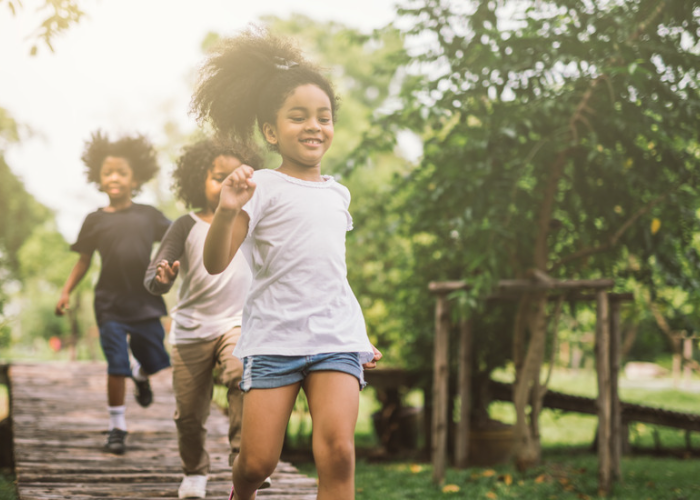Let’s face it. Technology has taken over all of our lives, especially our kids. Most children would prefer to stay indoors on their tablets playing games. Although staying indoors may be much more comfortable, it is essential to know that spending time outside is just as important. Outdoor play is advantageous to kids for reasons other than the regular exercise it gives. It enables them to interact socially, understand their bodies better, participate in creative play, and relish the outdoors. It may be challenging to plan outdoor time with your kid in today’s hectic and challenging environment. However, you must optimize it for your children’s healthy development and growth. School-aged children require approximately three hours of outdoor play per day. Although this is a great deal to add to your child’s routine, the activity will benefit their mental and physical well-being.
Here are some of the benefits of outdoor play which will encourage you to get your kids to play outdoors.
Improve Motor Skills
Numerous recreational activities typically aid in developing essential motor skills in children, such as coordination, agility, stability, and reflexes. Children that stimulated to discover their surroundings will place their skills to the test and acquire new knowledge through experimentation and error. Children who spend time outside are more inclined to move in forms that test their bodies in general. Children participating in physical activity can enhance their bodies and self-confidence.
Physical Exercise
Children must develop cardiovascular endurance. Moving, running, leaping, and climbing all help young bodies build muscle strength and stamina. Since they can participate in physical play, children who spend more time outside are less likely to suffer from weight-related health problems. Outdoor areas are ideal for naturally encouraging kids to engage in at least one hour of playtime daily. Furthermore, developing a positive correlation with physical exercise in a child’s formative years prepares them for a good outlook toward keeping an active way of life in their adult years.
Foster Independence
Research has proven outdoor play assists children in gaining a sense of freedom. It enables them to play new games with their playmates, explore different things, and discover their limits and abilities. The optimism they will gain from these discoveries will aid them as they grow and learn. Outdoor play exposes children to unfamiliar environments and encourages them to take positive risks and experience new things at their own pace. It enables them to grow self-awareness and independence as they gain confidence in their abilities. Naturally, children test their skills and acquire new knowledge when given opportunities to try something unique.
Expand Learning Space
Playing outdoors can allow your children to explore nature and have adventures where they will learn many things. It gives them an impression that learning is more comprehensive than four walls. There are certain things that they can learn from playing outdoors that they cannot know when they are inside the house or in the classroom.
Improve Interpersonal Skills
Children regularly interact with other kids and learn to form connections at the playground, cubby houses, or play area. It can make children feel more at ease when they are needed to work collaboratively with new individuals and develop the skills that will serve them well into adulthood. When children acquire new friends, they innately become aware of their peers’ emotions and feelings as they communicate in a secure and encouraging environment. It promotes healthy interpersonal interaction and enables them to make connections without the assistance of their parents or guardians.
Build Resilience
Children today are accustomed to pleasant surroundings and immediate gratification. Enjoying hours outdoors, which may be unpredictable, can teach children to cope with physical and emotional challenges. Numerous outdoor and active play interactions can teach children to persevere in the face of adversity, thereby increasing confidence and self-motivation. As an outcome, children learn to deal with their anxieties and pressure, resulting in better outcomes in their educational lives and future professions.

